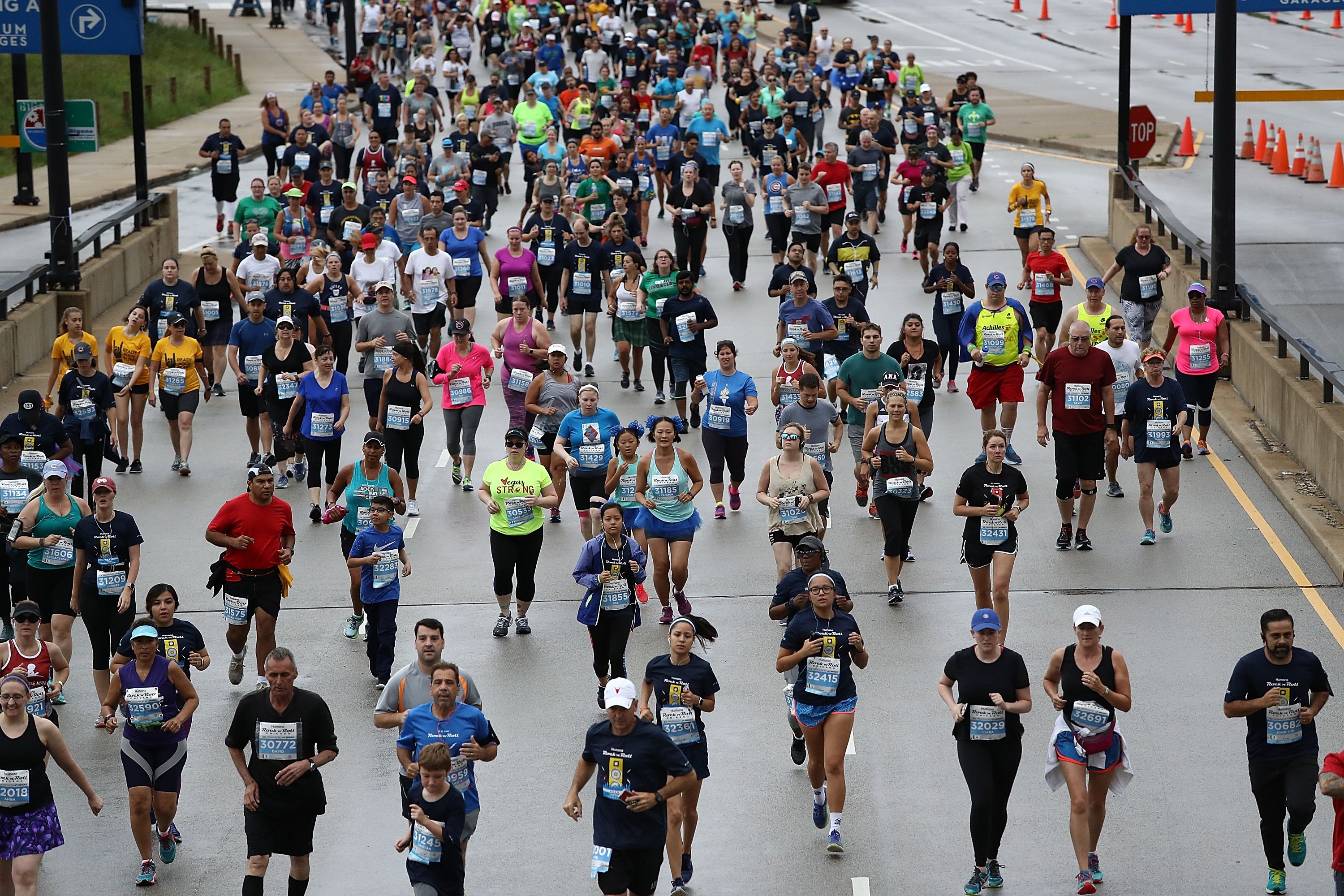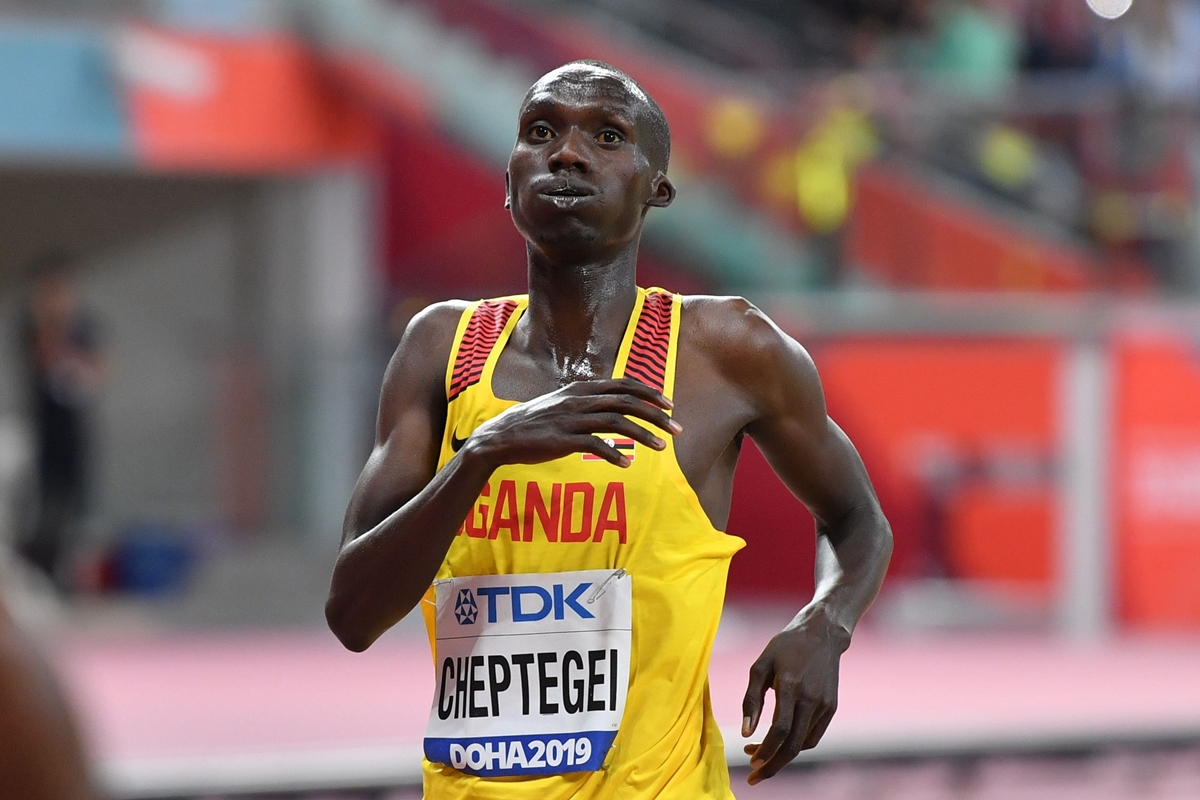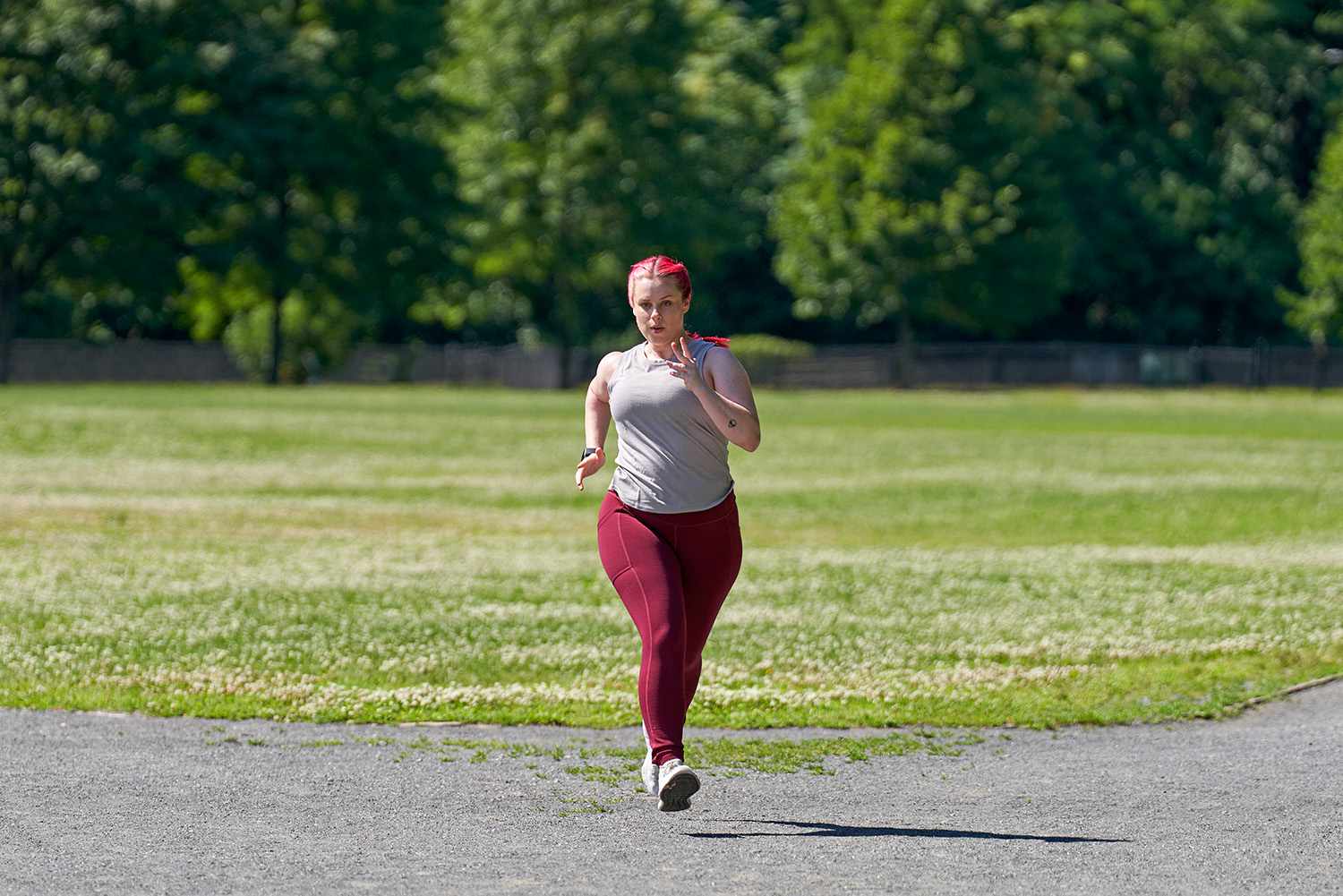

Featured
How Many Lbs Can You Lose From A 5K Run
Modified: January 2, 2024
Discover how many pounds you can lose from a 5K run. Get inspired by our featured stories and start your fitness journey today!
Introduction
Welcome to the exciting world of running! Whether you’re a seasoned athlete or just starting out, running is a fantastic way to improve your fitness, boost your mental well-being, and yes, even lose weight. Among the many running events out there, a 5K run is the perfect distance for beginners and experienced runners alike. It’s a 3.1-mile race that challenges you while still being achievable.
When it comes to weight loss, running is a top choice for many people. The combination of cardiovascular exercise and the potential to burn calories can make running a highly effective tool in your weight loss journey. So, how many pounds can you lose from a 5K run?
Before we delve into the specifics, it’s important to note that weight loss is a complex process influenced by various factors. It’s not solely determined by the number of pounds you shed during an individual run. However, incorporating regular 5K runs into your fitness routine can contribute significantly to your overall weight loss efforts.
Throughout this article, we’ll explore the benefits of running, factors that affect weight loss, calories burned during a 5K run, and how weight loss occurs. We’ll also discuss the role of intensity and duration in maximizing weight loss during a 5K run. By the end, you’ll have a better understanding of how running can help you shed pounds and how to make the most of your 5K runs for weight loss.
Benefits of Running
Running offers a wide range of benefits that go beyond weight loss. Here are some of the key advantages of incorporating running into your fitness routine:
- Improved cardiovascular health: Running is a fantastic cardiovascular exercise that strengthens your heart, improves blood circulation, and lowers your risk of heart disease.
- Weight management: Running is a highly effective calorie-burning exercise. Regular runs, including 5K races, can help you maintain a healthy weight or shed pounds if you’re looking to lose weight.
- Stress relief: Running not only has physical benefits but also provides a mental release. It can help reduce stress levels, boost your mood, and increase your overall sense of well-being.
- Improved bone density: Running is a weight-bearing exercise that helps strengthen your bones, reducing the risk of osteoporosis and promoting better bone health.
- Increased endurance and stamina: Regular running improves your stamina, allowing you to endure physical exertion for longer periods and perform better in other sports or activities.
- Boosted immune system: Running can enhance your immune system, making you less susceptible to illness and infections.
- Enhanced mental clarity and focus: Running releases endorphins, which can improve your mental clarity, focus, and concentration.
- Improved sleep quality: Running can help regulate your sleep patterns, promoting better sleep quality and ensuring you wake up feeling refreshed and energized.
With all these fantastic benefits, you can see why running, including participating in a 5K run, is a popular choice for individuals seeking overall fitness and well-being.
Factors Affecting Weight Loss
While running, including a 5K race, can contribute to weight loss, it’s important to understand that several factors influence the amount of weight you may lose. Here are some key factors to consider:
- Caloric intake: To lose weight, you need to create a calorie deficit, which means consuming fewer calories than your body needs. Running burns calories, but if you consume more calories than you burn, weight loss may be minimal.
- Body composition: Individuals with greater muscle mass tend to burn more calories, even at rest. So, if you build lean muscle through resistance training along with running, you can boost your metabolism and increase your weight loss potential.
- Overall diet: Running alone is not enough for effective weight loss. Incorporating a balanced, nutritious diet with plenty of fruits, vegetables, whole grains, and lean proteins is crucial for supporting your weight loss goals.
- Consistency and frequency: The frequency of your running sessions, including 5K runs, and the consistency of your exercise routine play a vital role in achieving weight loss. Regularity is key, so aim for consistent running sessions to maximize weight loss efforts.
- Individual metabolism: Each person has a unique metabolism, which affects how efficiently their body burns calories. Some individuals naturally burn calories at a faster rate than others, impacting weight loss results.
- Sleep quality and stress levels: Lack of sleep and high stress levels can affect your body’s ability to lose weight. Aim for adequate sleep and incorporate stress-reducing strategies, such as mindfulness or meditation, to support weight loss efforts.
- Hormonal factors: Hormonal imbalances, such as thyroid issues or insulin resistance, can affect weight loss. If you suspect any underlying hormonal issues, it’s important to consult with a healthcare professional for appropriate guidance.
By considering these factors and making necessary adjustments, you can optimize your weight loss potential while enjoying the benefits of running, including participating in a 5K run.
Calories Burned During a 5K Run
A 5K run, covering a distance of 3.1 miles, can be a great calorie-burning activity. The number of calories burned during a 5K run depends on various factors, including your weight, running speed, and individual metabolism. On average, a person weighing around 155 pounds can expect to burn approximately 300-400 calories during a 5K run.
However, it’s important to note that this calorie estimate is only a general guideline. Factors such as running intensity, terrain, and even weather conditions can impact the actual number of calories burned. Running at a higher intensity, such as sprinting, will generally burn more calories compared to jogging or running at a moderate pace.
If you want a more accurate estimate of the calories burned during a 5K run, you can use online calculators or fitness tracking devices that take into account your specific details, including weight and running speed.
Keep in mind that the calories burned during a 5K run are just a small part of the weight loss equation. To achieve meaningful weight loss, it’s essential to focus on creating a calorie deficit through a combination of regular exercise, a balanced diet, and overall healthy lifestyle habits.
By incorporating a 5K run into your fitness routine and making smart choices about your diet and lifestyle, you can optimize the potential for weight loss and overall well-being.
How Weight Loss Occurs
Weight loss occurs when your body burns more calories than it consumes. Running, including participating in a 5K race, can contribute to weight loss through several mechanisms:
- Calorie expenditure: Running is a high-intensity exercise that helps you burn a significant number of calories. The more intense your run, the more calories you’re likely to burn. This caloric expenditure creates a calorie deficit, leading to weight loss over time.
- Increased metabolism: Running stimulates an increase in your metabolic rate, both during and after the activity. This means your body continues to burn calories even after you’ve finished running. Regular running can help boost your overall metabolism, making it easier to achieve and maintain weight loss.
- Muscle development: Running is a weight-bearing exercise that helps build and tone muscles in the lower body, including the legs, hips, and buttocks. Increased muscle mass helps to raise your resting metabolic rate, allowing you to burn more calories throughout the day.
- Reduction in body fat: Running promotes the utilization of stored fat as a source of energy. As your body burns calories during a run, it taps into fat stores, leading to a reduction in overall body fat over time.
- Improved insulin sensitivity: Regular running can improve insulin sensitivity, making weight loss more effective. Enhanced insulin sensitivity means your body is better able to regulate blood sugar levels, reducing the likelihood of excess calories being stored as fat.
- Appetite regulation: Running can help regulate appetite by increasing the production of hormones that control hunger and fullness. This can prevent overeating and aid in weight loss efforts.
It’s important to remember that weight loss is a gradual process and can vary from person to person. Patience and consistency are key. By incorporating regular running, including participating in a 5K run, along with a balanced diet and healthy lifestyle habits, you can achieve sustainable weight loss and improve your overall fitness and well-being.
The Role of Intensity and Duration
When it comes to running for weight loss, both the intensity and duration of your runs play a significant role in determining how effectively you can shed pounds. Here’s a closer look at the impact of intensity and duration on weight loss:
- Intensity: Running at a higher intensity, such as incorporating intervals or incorporating uphill segments, can significantly increase your calorie burn. High-intensity running helps to elevate your heart rate, allowing you to burn more calories during and after your run. Consider adding bursts of speed or hill sprints to your 5K runs to increase the intensity and maximize weight loss potential.
- Duration: The duration of your runs also affects weight loss. Longer runs generally burn more calories, but it’s important to build up endurance gradually to avoid injuries and burnout. Aim for a balance between the duration of your runs and your fitness level. As you progress, gradually increase your run’s duration to challenge yourself and continue pushing towards your weight loss goals.
- Combination of intensity and duration: When it comes to weight loss, finding the right combination of intensity and duration is crucial. Incorporating high-intensity intervals during shorter runs can be just as effective for weight loss as longer, slower runs. Adding variety to your 5K runs, such as mixing in sprints or running up hills, can help increase intensity and boost calorie burn.
It’s important to listen to your body and find a balance that works for you. Push yourself to challenge your fitness level, but also allow for adequate rest and recovery. Always prioritize proper warm-up and cool-down routines to prevent injuries and maximize the benefits of your 5K runs.
Remember, weight loss is a gradual process, and consistency is key. By incorporating both intensity and duration variations into your running routine, you can optimize your weight loss potential and experience the many other benefits that running offers.
Tips for Maximizing Weight Loss during a 5K Run
Running a 5K race is an excellent way to jumpstart your weight loss journey. Here are some tips to help you maximize weight loss during your 5K runs:
- Focus on intensity: Incorporate intervals or hill sprints into your 5K runs to increase the intensity and calorie burn. Push yourself to run at a challenging pace during these bursts of higher intensity.
- Incorporate strength training: Combine your running routine with strength training exercises to build lean muscle. Increased muscle mass helps boost your metabolism, allowing you to burn more calories even at rest.
- Watch your diet: Fuel your body with nutritious foods to support your weight loss goals. Focus on a balanced diet that includes lean proteins, whole grains, fruits, and vegetables. Avoid excessive calorie consumption that may hinder weight loss progress.
- Stay hydrated: Proper hydration plays a crucial role in weight loss and overall health. Drink water before, during, and after your 5K runs to stay hydrated and support optimal performance.
- Track your progress: Use a fitness tracker or smartphone app to track your distance, pace, and calorie burn during your 5K runs. Monitoring your progress can help you stay motivated and make adjustments as needed.
- Set realistic goals: Set achievable weight loss goals for yourself and track your progress over time. Celebrate smaller milestones along the way to stay motivated and maintain focus on your weight loss journey.
- Consider cross-training: Don’t limit yourself to just running. Include cross-training activities like cycling, swimming, or strength training to challenge your body and prevent plateaus in your weight loss efforts.
- Prioritize recovery: Allow your body time to recover between runs to prevent injuries and let your muscles rebuild. Incorporate rest days and include stretching or light exercises on those days to promote recovery.
Remember, weight loss is not just about your 5K runs alone. It’s a holistic approach that includes a combination of regular exercise, a balanced diet, and overall healthy habits. Stay consistent, be patient with yourself, and enjoy the journey as you work towards your weight loss goals.
Conclusion
Participating in a 5K run can be an effective tool in your weight loss journey. Running offers numerous benefits beyond weight loss, including improved cardiovascular health, increased endurance, stress relief, and enhanced mental well-being.
It’s important to remember that weight loss is a complex process influenced by various factors, such as caloric intake, body composition, and overall diet. While running a 5K can contribute to weight loss, it’s crucial to combine it with a balanced diet, strength training, and healthy lifestyle habits for optimal results.
Understanding the role of intensity and duration in your runs can help maximize weight loss potential. Incorporate high-intensity intervals, mix up your running routine, and consider adding strength training exercises to build lean muscle and boost your metabolism.
Remember to listen to your body, set realistic goals, and track your progress along the way. Celebrate your accomplishments, no matter how small, and stay motivated on your weight loss journey. Embrace the process, enjoy the physical and mental benefits of running, and make running a lifelong habit for a healthy and balanced lifestyle.
So lace up your running shoes, challenge yourself with a 5K run, and embark on a rewarding journey towards improved fitness, well-being, and weight loss!









